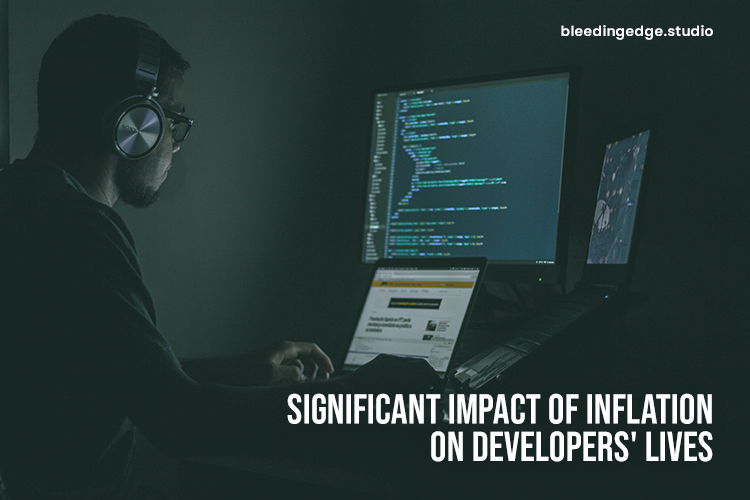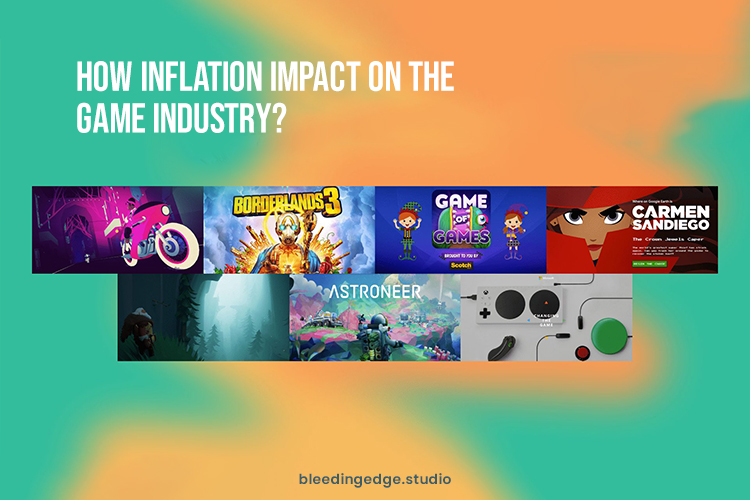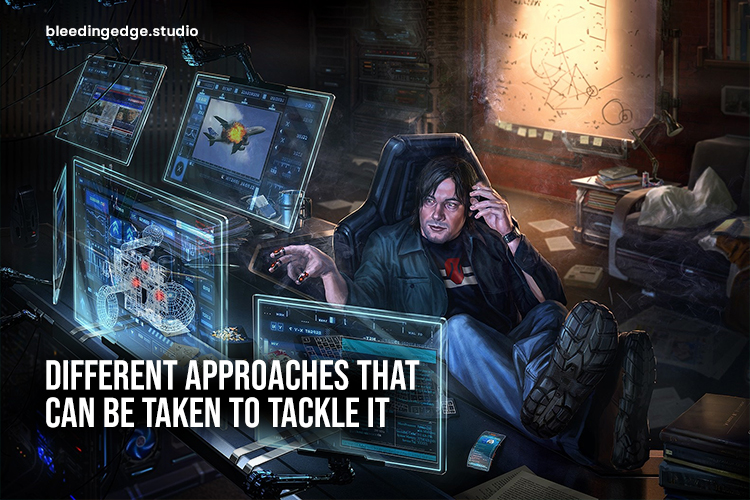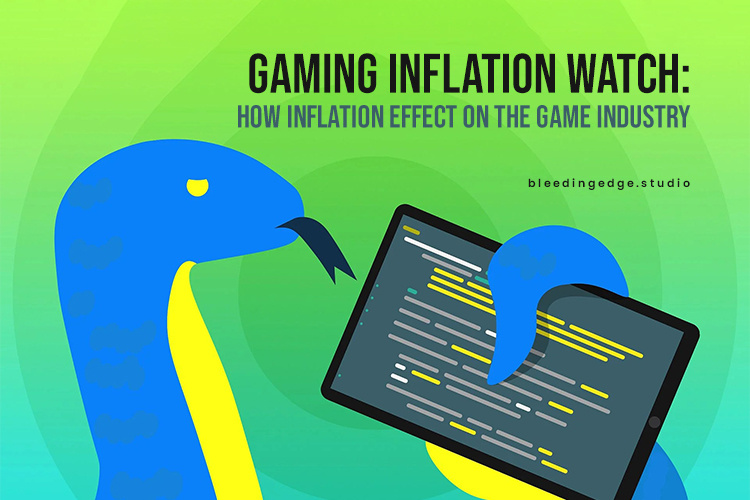Gaming Inflation Watch: How Inflation Effect on The Game Industry
Inflation means the rate at which the general level of prices for goods and services in an economy rises, resulting in a decrease in the currency’s purchasing power. Inflation can occur due to various factors, including increased demand for goods and services, supply chain disruptions, government policy changes, or money supply.
Inflation is usually measured using an inflation index, such as the Consumer Price Index (CPI) or the Producer Price Index (PPI), which tracks changes in the amounts of goods and services over time. Inflation can significantly impact the economy, as it affects the cost of living for consumers, the profitability of businesses, and the value of savings and investments. High or unpredictable inflation rates can lead to economic instability and political unrest in inflation, effect on the game industry.
Inflation can have an impact on the gaming industry in several ways:
One of the most significant impacts is video games and gaming equipment pricing. If inflation is high, the cost of producing and distributing games and gaming equipment can increase, leading to higher consumer prices. As a result, consumers may be less likely to purchase games or gaming equipment, which could have a negative impact on the gaming industry’s inflation effect on the game industry.
Inflation can also affect the purchasing power of gamers. If the cost of living increases due to inflation, consumers may have less disposable income for gaming. This could reduce gaming companies’ sales, particularly for higher-priced games or equipment.
Additionally, inflation can impact the virtual economies that exist within many games. In some games, players can earn in-game currency or items with real-world value. Inflation can impact the value of these items, which can, in turn, affect the game’s economy and the value of players’ investments.
Overall, while inflation may not immediately and directly impact the gaming industry, it can have a ripple effect that can impact consumers, businesses, and virtual economies in inflation effects.
Inflation can significantly impact developers’ lives, particularly if they live and work in an economy experiencing high inflation rates. Inflation can lead to increased costs for necessities such as food, housing, and transportation, which can impact the quality of life for developers.

In addition to the impact on their personal lives, inflation can also affect developers’ careers. If inflation leads to decreased consumer spending, game studios, and publishers may have less revenue to invest in new games and projects, which could reduce developer job opportunities. Alternatively, studios may try to offset the impact of inflation by cutting costs, which could lead to reduced salaries, benefits, or job security for developers in inflation effect on the game industry.
Inflation can also impact the cost of technology and equipment developers use to create games. If the cost of components, software, or other tools developers use increases due to inflation, this could lead to higher costs for game development and slower adoption of new technologies.
Overall, inflation can have a complex and varied impact on developers’ lives, depending on the specific circumstances and conditions of their employment and the broader economic environment in which they live and work in inflation effects.
Like developers, designers can also be impacted by inflation, particularly if they live and work in an economy experiencing high inflation rates. Inflation can lead to increased costs for necessities such as food, housing, and transportation, which can impact the quality of life for designers in inflation and affect the game industry.
Inflation can also impact the cost of design materials and tools, such as software, hardware, and office supplies. If the cost of these materials increases due to inflation, it can make it more difficult for designers to purchase and use the tools they need to do their job effectively.
Inflation can also affect the demand for design services. If inflation leads to decreased consumer spending, companies may be less likely to invest in new design projects or may have reduced budgets for design work. This could result in reduced job opportunities for designers, particularly if they work as freelancers or are employed by companies impacted by inflation’s effect on the game industry.
Finally, inflation can also impact designers’ salaries and overall earning potential. If the cost of living increases due to inflation, but salaries do not increase at the same rate, designers may need help to make ends meet. Additionally, if inflation decreases demand for design services, this could impact designers’ ability to negotiate higher salaries or find new job opportunities.
Overall, inflation can have a complex and varied impact on designers’ lives, depending on the specific circumstances and conditions of their employment and the broader economic environment in which they live and work. Inflation affects the game industry.
Like developers and designers, CG artists can also be impacted by inflation. Inflation can lead to increased costs for necessities such as food, housing, and transportation, which can impact the quality of life for CG artists.
Inflation can also impact the cost of software, hardware, and other tools used by CG artists. If the cost of these materials increases due to inflation, it can make it more difficult for CG artists to purchase and use the tools they require to do their job effectively; inflation affects the game industry.
Inflation can also impact the demand for CG art services. If inflation decreases consumer spending or companies’ marketing budgets, there may be less demand for CG art services. This could result in reduced job opportunities for CG artists, particularly if they work as freelancers or are employed by companies impacted by inflation.
Additionally, if CG artists’ salaries increase at a different rate than the cost of living, they may struggle to make ends meet. Inflation can also impact the value of CG artists’ earnings, particularly if they are paid in a currency impacted by inflation. If inflation decreases the currency’s value, CG artists may find their earnings worth less than before.
Overall, inflation can have a complex and varied impact on CG artists’ lives, depending on the specific circumstances and conditions of their employment and the broader economic environment in which they live and work.
Inflation Effect on the Game industry:
Like other creative professionals, VFX artists can also be affected by inflation. Inflation can lead to increased costs for necessities such as food, housing, and transportation, which can impact the quality of life for VFX artists.

Inflation can also impact the cost of software, hardware, and other tools used by VFX artists. If the cost of these materials increases due to inflation, it can make it more difficult for VFX artists to purchase and use the tools they need to do their work effectively.
Furthermore, inflation can affect the demand for VFX services. If inflation leads to decreased consumer spending, studios and production companies may be less likely to invest in VFX-heavy projects, which could result in reduced job opportunities for VFX artists. Additionally, if inflation leads to a decrease in marketing budgets for companies, this could also impact the demand for VFX services in advertising and marketing in inflation effect on the game industry.
Inflation can also impact the value of VFX artists’ earnings, particularly if they are paid in a currency impacted by inflation. If inflation decreases the currency’s value, VFX artists may find their earnings worth less than before.
Overall, inflation can have a complex and varied impact on VFX artists’ lives, depending on the specific circumstances and conditions of their employment and the broader economic environment in which they live and work.
Inflation can greatly impact the game industry, particularly if it leads to decreased consumer spending and reduced revenue for game studios and publishers. If inflation causes an increase in the cost of living, consumers may have less disposable income to spend on entertainment, including video games. This could lead to reduced demand for games and lower sales for game companies.
Inflation can also impact the cost of game development. If the cost of materials, software, hardware, and other tools used in game development increases due to inflation, game companies may face higher costs for creating and releasing games. This could impact the number and quality of games released, as companies may need more budget to invest in new games or cut costs in other areas to offset the impact of inflation on the game industry.
Furthermore, inflation can also impact the currency’s value, affecting game companies that operate globally. If the currency of a country with a large game industry is impacted by inflation, this could have a ripple effect on the entire industry, as it could impact the ability of companies to do business across borders, invest in new projects, or pay employees in inflation effects.
Overall, inflation can have a complex and varied impact on the game industry, depending on the specific circumstances and conditions of the industry and the broader economic environment in which it operates.
Inflation can be a complex economic issue, and different approaches can be taken to tackle it. Here are some of the ways that inflation can be addressed:

Monetary policy: One of the main tools central banks use to control inflation is monetary policy. This can involve adjusting interest rates, open market operations, and other measures to regulate the money supply in the economy. By controlling the money supply, central banks can influence inflationary pressures.
Fiscal policy: Governments can use fiscal policy to address inflation by adjusting taxation and spending policies. For example, increasing taxes or reducing government spending can help reduce economic demand and decrease game industry inflationary pressures.
Wage and price controls: In some cases, governments may introduce wage and price controls to limit the increase in prices and wages. However, this approach can be controversial and may have unintended consequences, such as reducing the incentive for businesses to invest and create jobs.
Supply-side policies: Governments can also use supply-side policies to address inflation. This can involve measures such as deregulation, investment in infrastructure, and reducing barriers to entry for businesses. Increasing the supply of goods and services can reduce inflationary pressures.
International cooperation: Inflation can also be addressed through international cooperation. For example, countries can work together to reduce trade barriers and promote greater economic integration, which can help to reduce inflationary pressures.
Overall, there are many approaches to tackling inflation, and the best strategy will depend on each country’s specific economic circumstances and conditions. A combination of monetary and fiscal policies, supply-side measures, and international cooperation may be necessary to address inflation’s effect on the game industry effectively.

